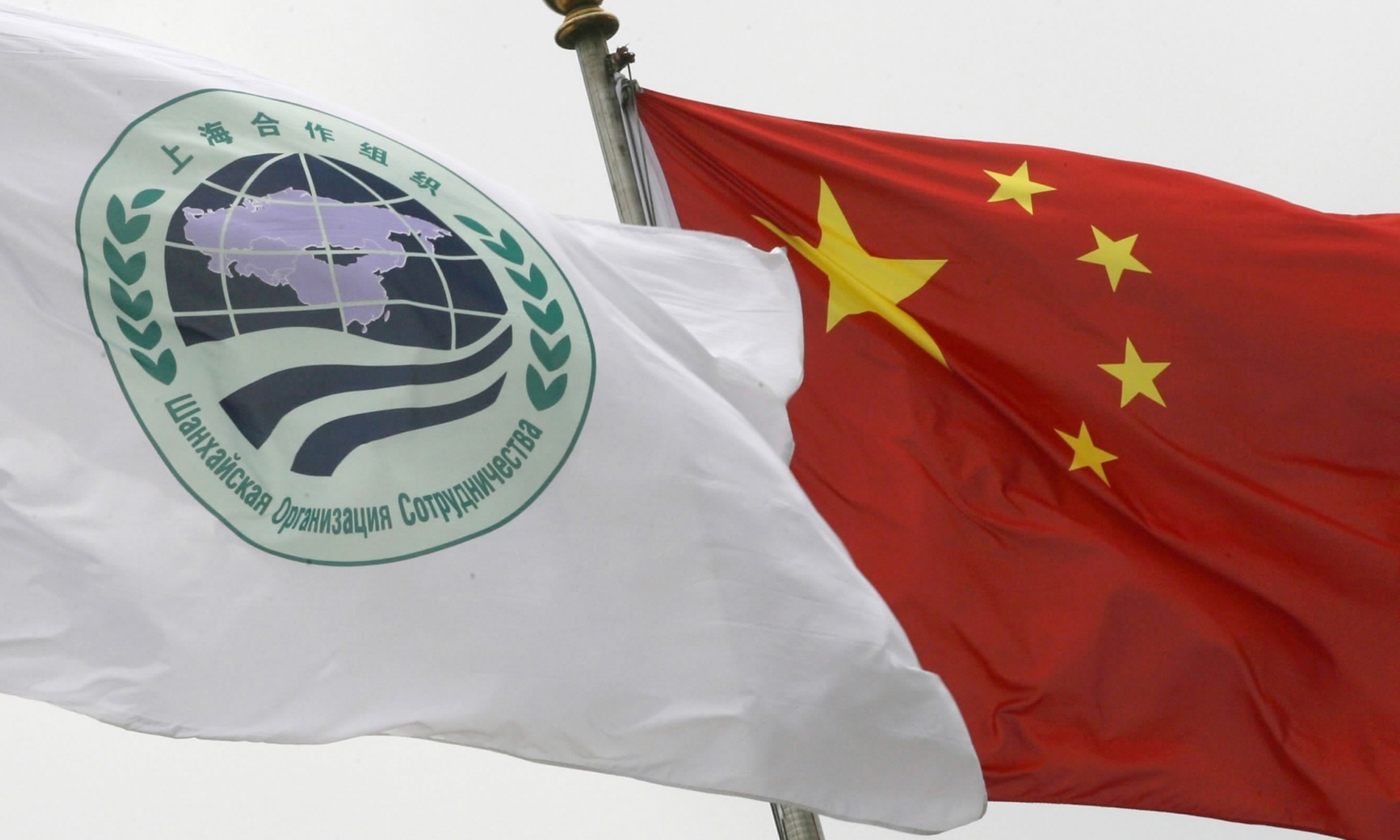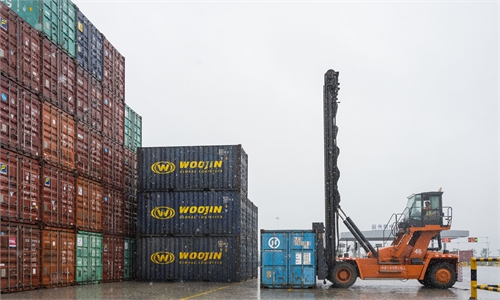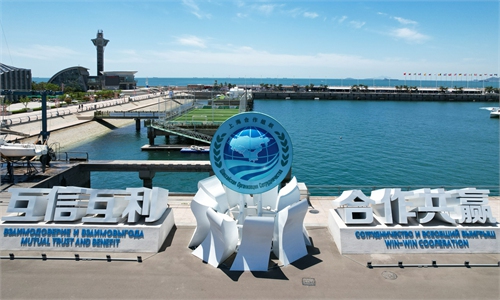
File Photo:CGTN
Amid complex changes in the international situation, India, chair of the Shanghai Cooperation Organisation (SCO), will host the SCO summit in a virtual format on Tuesday.To some Westerners' disappointment, the SCO still presents a model of successful regional cooperation where different countries find common ground for mutual benefit, with its size and popularity continuing to grow. China's long-standing positive contributions and wisdom, against this backdrop, have become a guarantee for consolidating the strength of all parties and promoting the steady development of the SCO.
China has put forward a series of new cooperation concepts in the development of the SCO, especially the Shanghai Spirit, which features mutual trust, mutual benefit, equality, consultation, respect for diverse civilizations and pursuit of common development. In 2018, during the 18th Meeting of the Council of Heads of Member States of the SCO in eastern China's Qingdao, Chinese President Xi Jinping called for member nations to pursue innovative, coordinated, green, open and inclusive development in order to achieve coordinated social and economic progress and resolve issues caused by unbalanced development.
There are eight members in the SCO. As Iran becomes the newest member of the SCO, there will be nine after the summit, with a total landmass that covers over three-fifths of the Eurasian continent. But there are significant differences in different members' geographical location, resources, cultural traditions, and economic strength. The China-advocated Shanghai Spirit and these new appeals for cooperation have created favorable conditions for member states to overcome cooperation barriers, eliminate external interference, expand the basis of common interests, and establish a new model of regional cooperation.
Under China's advocacy, the SCO has formed distinctive features: bringing head-of-state diplomacy into full play, promoting multi-domain cooperation simultaneously, and building a constructive partnership that is non-aligned, non-confrontational, and is not directed against third parties. The SCO upholds true multilateralism, opposes a Cold War mentality and power politics, and has become an important pillar of multipolarization and democratization of international relations.
From the perspective of promoting practical cooperation within the SCO framework, China stresses that finding the best path should be based on regional development and the actual situation of member states, focusing on the steady progress and balanced development of cooperation in political, economic, security, and people-to-people fields, while highlighting the priorities of cooperation in the light of the views of various parties, and seeking priorities and breakthroughs. Due to significant differences in the interests and demands of member states, it is not advisable to rush the cooperation process. Therefore, a combination of multilateral and bilateral approaches has been adopted, with the launch of dozens of meeting mechanisms, establishments of the SCO Business Council and SCO Interbank Consortium, creating various multilateral platforms, and demonstration zones for agricultural cooperation and sub-national cooperation. These steps gradually implement the consensus reached at the SCO Summit and prime ministerial meetings.
On the cooperation platform of the SCO, China, together with other member states, have established cooperation across various fields, with both long-term goals and short and medium-term plans.
Phased goals have been proposed: in terms of security, combating the "three forces" of extremism, terrorism and separatism, and transnational criminal activities such as drug trafficking. Other fields have also been touched upon in terms of economy, trade and investment. After the Belt and Road Initiative (BRI) was proposed, China emphasized that the SCO can become an important platform for member states to connect their strategic plans under the framework of the BRI.
In the face of the combination of changes unseen in a century, great power games, and regional conflicts, coupled with increasing internal contradictions brought about by enlargement, the SCO is facing more practical challenges and needs to propose more long-term development goals to enhance the resilience and stability of its cooperation. China has been calling for concerted efforts to build a SCO community with a shared future in 2018, and further proposed at the 2020 summit to construct a community of health, a community of development, a community of security, and a community of cultural exchanges, all of which has contributed to enhancing the cohesion of the SCO.
The author is head at the Institute of Russian, Eastern European &Central Asian Studies of the Chinese Academy of Social Sciences. opinion@globaltimes.com.cn


